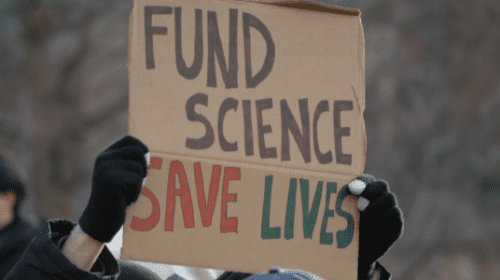Today marks World AIDS Day. Although great strides have been made toward prevention and management of this virus, there are over one million Americans currently living with HIV, about 14 percent of whom don’t know it and need testing. It’s also important that we keep addressing the relationship between addiction and AIDS and their disproportionate impact on the LGBTQ+ community.
The United States Department of Health and Human Services established World AIDS Day in 1988 in response to the sweeping and deadly pandemic that consumed the world and confounded public health experts everywhere during its early proliferation. In addition to gay and bisexual men, HIV/AIDS also disproportionately affects racial and ethnic minorities.
The ongoing effort to eradicate AIDS must include a thorough and action-oriented examination of issues that lead to higher rates among sexual and ethnic minorities, as well as the factors that create barriers to treatment for these groups. Recovery Unplugged is acutely aware of the pervasive relationship between HIV/AIDS and addiction and just how much it impacts this consistently vulnerable population.
AIDS and Addiction: A Deeper Look
There are multiple medical, behavioral, and cultural factors that deepen the intersection of AIDS and drug addiction. The National Institute on Drug Abuse reports that people who engage in drug use or high-risk behaviors associated with drug use put themselves at risk for contracting or transmitting viral infections such as HIV, AIDS, and others. Data from the Centers for Disease Control and Prevention (CDC) indicates that one in 10 HIV diagnoses occur among people who inject drugs. Approximately 20 percent of all HIV diagnoses in male patients and 21 percent among women are the results of intravenous drug use.
In addition to the direct medical connections between the risks of HIV and drug use, there are multiple behavioral factors that can and do, strengthen this correlation. One of the most glaring examples of this is rates of unprotected sexual contact. Unprotected is significantly higher among both heterosexual and homosexual drug users. This includes injection drugs, like heroin, as well as other types of drugs, such as cocaine.
Preventing HIV/AIDS as an Intravenous Drug User
If you or someone you care about is engaging in injection drug use, and you have not yet been able to find your way to treatment, you can lessen, NOT PREVENT, your chances of viral contraction by not reusing needles, going for frequent blood tests and vaccinating yourself against hepatitis A and B. You should also talk to your physician about pre-exposure prophylaxis or PrEP, which is a daily medicine to help prevent onset of HIV. The best thing you can do to protect yourself against IDU-related HIV/AIDS, however, is to get treatment for your addiction. No harm-reduction intervention is guaranteed to be effective in preventing these viruses, and there are significant dangers of injection drug use that go far beyond viral infection. Start getting treatment now.
Putting It All Together: AIDS and Addiction among the LGBTQ+ Population
If there is one group that has proven singularly vulnerable to both AIDS and addiction, it’s the LGBTQ+ population. Medical risks, mental health issues, and other factors have, for years, rendered them more exposed than any other community: Sexual minorities are at increased risk for various behavioral health issues, according to data from the NIDA. The Substance Abuse and Mental Health Services Administration’s (SAMHSA) National Survey of Drug Use and Health indicate:
- More than a third of sexual minority adults 18 and older reported past year marijuana use, compared to 16.2 percent reported by the overall adult population.
- Past year opioid use (including misuse of prescription opioids or heroin use) was also higher, with nine percent of sexual minority adults aged 18 or older reporting use compared to under four percent among the overall adult population.
- There has been a three percent increase in the number of sexual minority adults aged 26 or older who reported past year misuse of prescription opioids over the past year.
At the same time, LGBTQ+ adults remain significantly more vulnerable to HIV/AIDS. The CDC reports nearly 70 percent of all new HIV diagnoses are among gay and bisexual men. They also report that anal sex is the leading driver of new diagnoses, with injection drug use coming in second. Stigma and prejudice prevent LGBTQ+ adults from minimizing exposure and getting help. Recent data from Kaiser Family Foundation indicates that 15 percent of gay and bisexual men had received poor treatment from a medical professional due to their sexual orientation, and at least 30 percent did not feel comfortable discussing their sexual behaviors with a healthcare provider.
Compassionate and Effective Substance Abuse Treatment for LGBTQ+ Patients
One of the primary treatment obstacles to both addiction and general medical treatment among LGBTQ+ patients is that they don’t feel they can trust their care providers. Recovery Unplugged has long been committed to providing safe, effective, and non-judgmental care to this community so they can reclaim their lives from substance abuse. We offer inpatient, outpatient, and residential treatment, as well as comprehensive care for all associated medical issues in conjunction with their addiction treatment. Our expert doctors and nurses are here to provide exemplary treatment for the totality of your substance abuse and related diagnoses, including HIV/AIDS and other issues.
Resources for HIV/AIDS Patients
Below are some resources that allow your or your loved one to get help and support when living with HIV/AIDS diagnosis:
- Ryan White HIV/AIDS Program
- State HIV/AIDS Hotlines
- Information on PREP
- The U.S. Department of Health and Human Services
If you or someone you care about is struggling with simultaneous AIDS/HIV and substance use disorder, don’t be afraid or ashamed to get help.

























